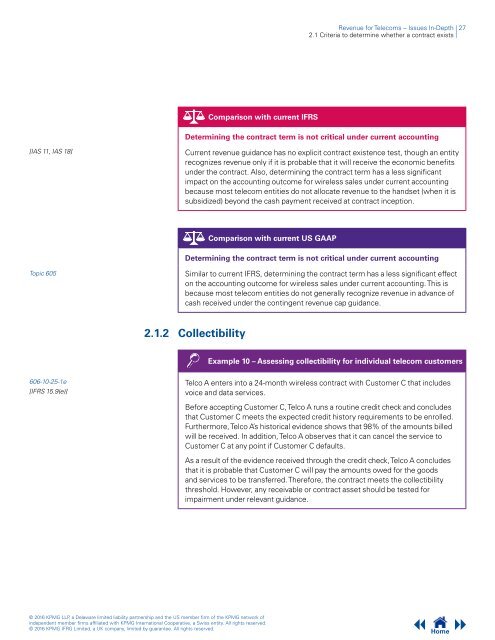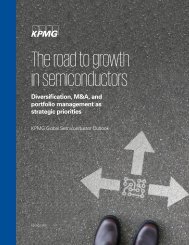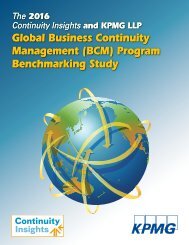Revenue for Telecoms
2cdncba
2cdncba
Create successful ePaper yourself
Turn your PDF publications into a flip-book with our unique Google optimized e-Paper software.
<strong>Revenue</strong> <strong>for</strong> <strong>Telecoms</strong> – Issues In-Depth | 27<br />
2.1 Criteria to determine whether a contract exists |<br />
Comparison with current IFRS<br />
Determining the contract term is not critical under current accounting<br />
[IAS 11, IAS 18]<br />
Current revenue guidance has no explicit contract existence test, though an entity<br />
recognizes revenue only if it is probable that it will receive the economic benefits<br />
under the contract. Also, determining the contract term has a less significant<br />
impact on the accounting outcome <strong>for</strong> wireless sales under current accounting<br />
because most telecom entities do not allocate revenue to the handset (when it is<br />
subsidized) beyond the cash payment received at contract inception.<br />
Comparison with current US GAAP<br />
Determining the contract term is not critical under current accounting<br />
Topic 605<br />
Similar to current IFRS, determining the contract term has a less significant effect<br />
on the accounting outcome <strong>for</strong> wireless sales under current accounting. This is<br />
because most telecom entities do not generally recognize revenue in advance of<br />
cash received under the contingent revenue cap guidance.<br />
2.1.2 Collectibility<br />
Example 10 – Assessing collectibility <strong>for</strong> individual telecom customers<br />
606-10-25-1e<br />
[IFRS 15.9(e)]<br />
Telco A enters into a 24-month wireless contract with Customer C that includes<br />
voice and data services.<br />
Be<strong>for</strong>e accepting Customer C, Telco A runs a routine credit check and concludes<br />
that Customer C meets the expected credit history requirements to be enrolled.<br />
Furthermore, Telco A’s historical evidence shows that 98% of the amounts billed<br />
will be received. In addition, Telco A observes that it can cancel the service to<br />
Customer C at any point if Customer C defaults.<br />
As a result of the evidence received through the credit check, Telco A concludes<br />
that it is probable that Customer C will pay the amounts owed <strong>for</strong> the goods<br />
and services to be transferred. There<strong>for</strong>e, the contract meets the collectibility<br />
threshold. However, any receivable or contract asset should be tested <strong>for</strong><br />
impairment under relevant guidance.<br />
© 2016 KPMG LLP, a Delaware limited liability partnership and the US member firm of the KPMG network of<br />
independent member firms affiliated with KPMG International Cooperative, a Swiss entity. All rights reserved.<br />
© 2016 KPMG IFRG Limited, a UK company, limited by guarantee. All rights reserved.<br />
Home







